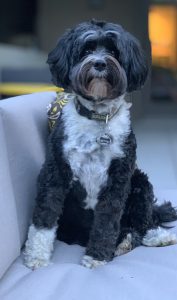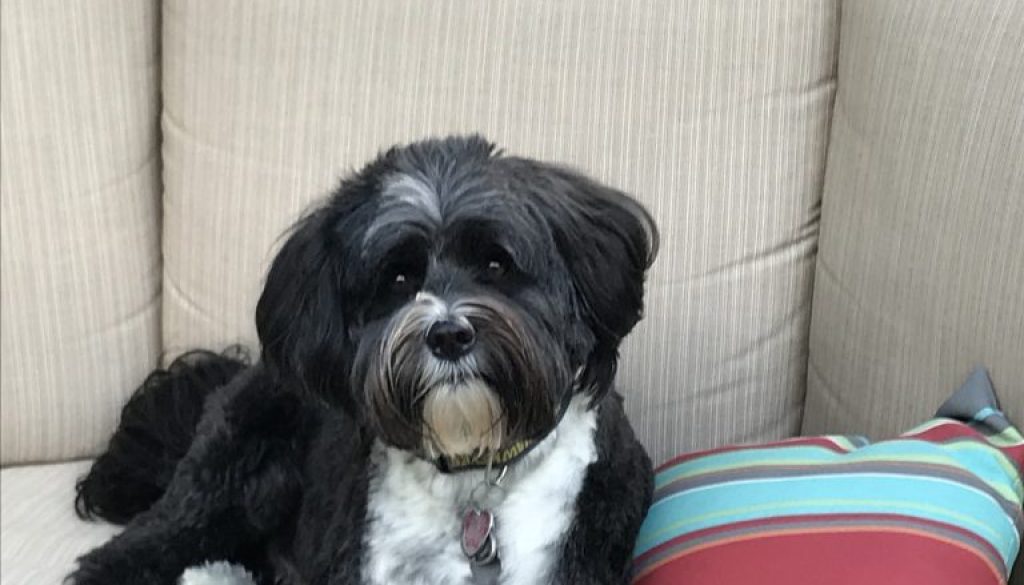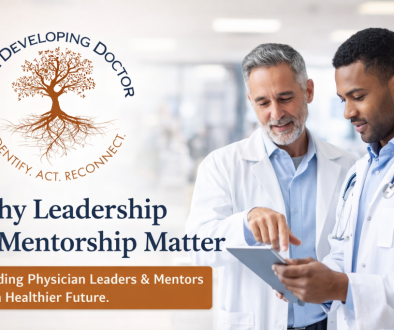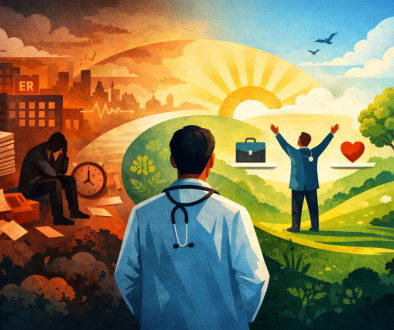When Healers Grieve: Pet Loss and Professional Identity
The Hidden Emotional Cost of Being a Doctor: When Personal and Professional Grief Collide
I thought I was prepared. As a pediatric cardiologist, I navigate grief and loss regularly, helping families through their darkest moments. But when I said goodbye to my beloved dog Stanzi recently, I discovered that all my professional experience hadn’t prepared me for this personal heartbreak.
The Bond Between Doctors and Their Pets: Finding Balance in a High-Stress Career
For twelve years, this black-and-white Tibetan Terrier was my constant in an unpredictable world. He was my 4:30 AM alarm clock, my most frequent (and hungry) dinner guest, and the best keeper of my secrets. Tibetan Terriers are affectionately known as “the little people of Tibet” and are renowned for their human-like personalities. Stanzi lived up to this reputation in every way. He was a beloved family member who saw me through countless sleepless nights and high-stress days.
Making Difficult Decisions: When Medical Knowledge Meets Personal Loss
The end came gradually. Stanzi developed diabetes, lost his sight and hearing, and struggled with a bladder stone that caused intermittent obstruction and incontinence. My mind knew it was time, but my heart rebelled. I found myself in an unfamiliar position – despite years of helping others make difficult medical decisions, I was struggling with making my own.
Professional Armor vs. Personal Pain: Breaking Down the Barriers
Physicians develop and proudly wear professional armor. We wear it for protection and as a badge of honor. Proof that we can rise above and compartmentalize grief to maintain focus, no matter the personal cost. In the hospital, this serves its purpose. But when faced with personal loss, this armor leaves us vulnerable and unequipped. Being exposed to grief and experiencing grief firsthand are profoundly different experiences.
Coping with Pet Loss: A Doctor’s Perspective on Grief and Healing
In the quiet moments after Stanzi’s passing, I grappled with conflicting emotions. The rational doctor in me understood that euthanasia was the humane choice. He was suffering. But the grieving pet parent in me mourned deeply for the loss of morning walks, enthusiastic greetings, and the simple comfort of his presence.
Finding Balance: Integrating Emotional Vulnerability into Medical Practice
This experience has reminded me of a lesson I have learned many times over. Sometimes, the best way to heal a broken heart is to use it more, not less. As physicians, we are trained to maintain professional distance and composure during hard times.
Here’s the thing: our capacity for deep emotion doesn’t diminish our clinical capabilities – it enhances them. Through my grief for Stanzi, I’ve also remembered the simple joy of his presence. Sadness and grief arise from previous joy, a tender reminder that we feel loss so deeply only because we have known love and happiness so profoundly. I am reminded that the best physicians are not superhuman—they are simply human. And in that humanness is joy, grief, and empathy for my patients, their families, and my colleagues.
Healing Strategies for Healthcare Professionals Dealing with Pet Loss
I’m learning to honor Stanzi’s memory by allowing myself to feel fully and love openly. I’ve found solace in memories, spending quiet moments in my garden, and connecting with others who remeber his quirky personality. These experiences have shown me that even the most skilled healers need time and space to heal themselves.
Support and Resources for Medical Professionals Experiencing Pet Loss
To my fellow medical professionals who have struggled with loss, it’s okay to grieve deeply. Our professional skills in handling loss, while valuable, don’t make us immune to personal pain. If anything, this vulnerability makes us better doctors, better humans.
The Impact of Personal Loss on Professional Growth: A Doctor’s Journey
Stanzi’s legacy lives on in how I practice medicine. He taught me that the divide between professional competence and personal emotion isn’t as wide as we sometimes pretend. By embracing both head and heart, we can create a more compassionate and authentic approach to healing – not just for our patients, but for ourselves as well.
Embracing Humanity in Healthcare
In the end, my little “person of Tibet” helped me understand that being a good doctor isn’t about suppressing our humanity – it’s about channeling it to connect more deeply with those we serve. And for that lesson, I will be forever grateful.





